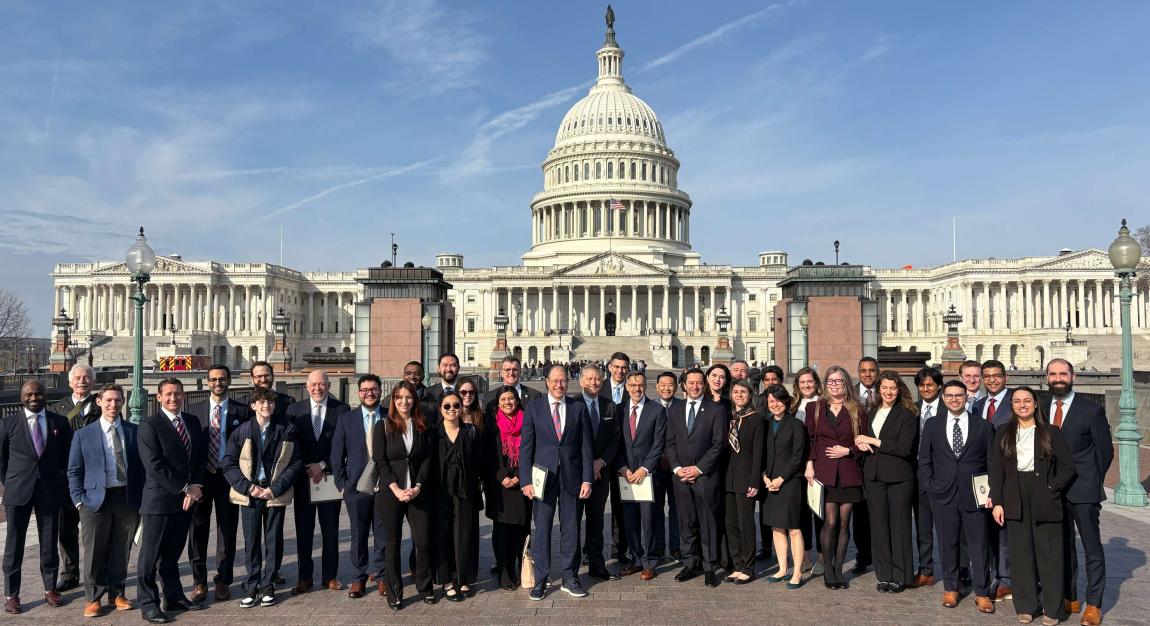The Trump administration is rapidly reshaping the federal government in part by introducing extensive policy changes with significant implications for healthcare. While many of these actions face legal challenges and remain temporarily halted by courts, those that were enacted may carry consequences that will affect the broader healthcare sector.
Due to recent changes, cardiothoracic surgery and other medical specialties face an increasingly complex and uncertain policy environment, which has already begun to influence clinical practices, research funding, and public health initiatives.
The Impact of NIH Research Funding Cuts
Proposed reductions to indirect cost reimbursements at the National Institutes of Health (NIH) — including an arbitrary 15% cap—pose significant threats to vital biomedical research infrastructure. "These proposed indirect funding cuts at the NIH would severely undermine our research capabilities and directly impact critical programs," emphasized Joseph Cleveland, MD, chair of the STS Council on Health Policy and Relationships. Such cuts jeopardize essential resources needed for lifesaving research, potentially delaying advancements in cardiothoracic surgery. Additionally, widespread delays and withholding of NIH grants increase uncertainty for researchers, threatening the continuity and momentum of important studies.
Nevertheless, STS remains proactive in advocacy efforts, consistently issuing statements opposing these funding reductions and collaborating with partners to raise awareness among lawmakers. Most recently, STS members took this issue to Capitol Hill during the STS Advocacy Conference in March.
Implications of Staffing Cuts at Federal Health Agencies
Staffing reductions at critical federal agencies, such as the Food and Drug Administration, Centers for Disease Control and Prevention, and Department of Health and Human Services, present significant risks to essential healthcare services. Adequate staffing is critical for the timely evaluation and approval of advanced medical devices, safeguarding public health, and supporting effective disease prevention and response efforts. "Staffing reductions at critical federal agencies could disrupt essential healthcare services," said Derek Brandt, STS Vice President of Government Relations. “Continuous advocacy and careful monitoring are crucial to maintaining these vital government functions essential to healthcare innovation and patient safety.”
Changing Medicare Payment Structures
Evolving healthcare delivery and reimbursement models are influencing medical practice. Notably, the Transforming Episode Accountability Model (TEAM), a mandatory payment framework proposed by the Biden administration, is scheduled to begin on Jan. 1, 2026. The TEAM model aims to enhance efficiency in post-surgery care for coronary artery bypass grafting patients. Although it could improve care efficiency, STS has voiced concerns about potential unintended consequences, such as reduced care quality if implementation is not carefully managed.
STS is providing constructive feedback to the Centers for Medicare & Medicaid Services to shape the TEAM model to ensure it prioritizes quality patient care. “The Health Policy and Advocacy team is putting PAC contributions to work by ensuring we maintain a strong presence in the policy arena,” said Rob Headrick, MD, chair of the STS Workforce on Health Policy, Reform, and Advocacy. “This allows STS to continue shaping healthcare policy in a way that reflects the evolving landscape while protecting the interests of cardiothoracic surgeons and the patients we serve.”
Budget Reconciliation and Looming Medicaid Cuts
Meanwhile, Congress is focused on the budget reconciliation process—a legislative approach allowing certain budget-related legislation to pass with only a simple majority in the Senate—to enact substantial healthcare reforms, including significant Medicaid funding cuts. These potential reductions could severely limit access to critical healthcare services for millions of low-income Americans, particularly those with complex lung and heart conditions.
STS strongly opposes significant reductions to Medicaid. Funding reductions could delay essential treatments, worsen health outcomes, and adversely affect specialized care, especially for vulnerable populations like children with congenital heart disease. STS has urged policymakers to maintain Medicaid’s crucial function and actively advocates for solutions that safeguard continued access to high-quality medical care, particularly in underserved communities.
As discussions continue, STS encourages its members to engage legislators and emphasize Medicaid's critical importance to public health and advocate against cuts that could have profound negative consequences. Read the full STS statement on Medicaid funding.
Advocacy in Action: How You Can Make a Difference
Despite the challenges posed by funding cuts and policy changes, there are several actions cardiothoracic surgeons can take to advocate for their specialty and the patients they serve. Here are a few ways to get involved:
- Share your experiences. If you are seeing the impacts of these changes in your practice, research, or patient care, STS encourages you to share your examples with the Advocacy team. This information will help STS better understand the real-world effects and guide future advocacy efforts.
- Engage with lawmakers. Cardiothoracic surgeons must communicate directly with their lawmakers, highlighting how policy changes and funding cuts affect their practices and patient outcomes. Informed and engaged physicians have the power to influence policy decisions. Contact the STS Advocacy team to help set this up.
- Support STS-PAC. The STS Political Action Committee (STS-PAC) plays a vital role in ensuring that cardiothoracic surgery has a strong voice in Washington. By donating, you help our specialty remain at the forefront of legislative discussions and ensure that the interests of both surgeons and patients are represented.
- Stay up to date. STS Advocacy tracks recent executive orders and administrative measures that impact our specialty. This includes many of the issues covered here and more.
Looking Ahead: Optimism and Resilience in Cardiothoracic Surgery
“Although the challenges posed by funding cuts and policy shifts are significant, the cardiothoracic surgery community has consistently demonstrated resilience and adaptability,” said Brandt. “Through the collective strength of organizations like STS and the dedication of our members, we remain committed to advocating for meaningful policy changes that advance our specialty and protect patient care.”
